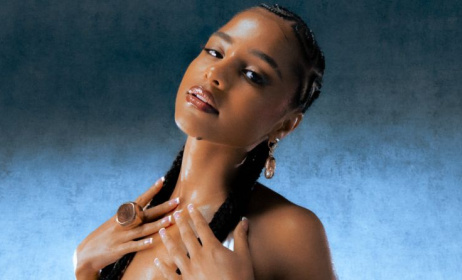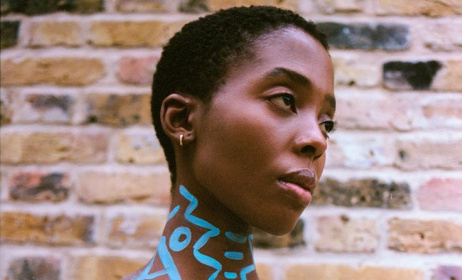Why you can't miss Sauti za Busara 2019
Zanzibar is a melting pot of culture and history. It plays host to tourists, seafarers and traders from all corners of the globe. Next month should be no different when the Sauti za Busara festival kicks off at Stone Town's Old Fort from 7 to 10 February.
 South Africa’s BCUC will make its Sauti za Busara debut next month.
South Africa’s BCUC will make its Sauti za Busara debut next month.
Praised by the BBC as "one of Africa's best and most respected music events", the grand event promises to be bigger and better, with festivalgoers treated to a unique blend of African sounds. The musical festivity normally attracts an audience of about 20 000. This year, those numbers are expected to increase due to scheduled performances from 46 groups and 400 artists on three stages.
The organisers will be keeping things fresh with an impressive line-up of acts. BCUC (South Africa) will bring their unmatched percussive energy to the festival for the first time. The band has been touring Europe periodically for a few years now. In 2018, BCUC performed to rapturous applause with Afrobeat superstar Femi Kuti at Jazz à La Villette in France.
Other exciting acts billed this year include Hoba Hoba Spirit (Morocco), Afrigo Band (Uganda) and Mokoomba (Zimbabwe), which will charm the audience with band's electrifying Tonga-beat infused Afro-fusion style.
Also confirmed is S Kide, a young artist working within Tanzania's a singeli genre, which is described by The Guardian as "the world’s most frenetic music". The act can deliver super-fast lyrical flows accompanied by synths and 300 bpm beats that are pitch-shifted to out-of-this-world frequencies.
Festival director Yusuf Mahmoud said the festival's 2019 edition would seek to raise awareness and educate festivalgoers about the scourge of corruption in Africa by featuring activist-musicians such as Faith Mussa (Malawi), Fadhilee Itulya (Kenya) and Fid Q (Tanzania), whose music advocates for peace, unity and human rights.
“Corruption is a vice eating away at the moral fibre of our society – across Africa and beyond,” Mahmoud said. “Sadly, it has now reached a point where some people even accept corruption as normal. Though one festival cannot completely change society, we join hands with local and global partners to promote dialogue, change attitudes and encourage action for good governance.”
In addition to the incredible line-up, Sauti za Busara has collaborated with Zanzibar’s Dhow Countries Music Academy (DCMA) to provide opportunities for musicians of different backgrounds to collaborate and exchange ideas.
“These collaborative compositions happen on the main stage under the title of Swahili Encounters,” Mahmoud said. “Swahili Encounters 2019 will bring together artists from Zanzibar, Tanzania, Kenya, South Africa, Sudan, Egypt and Algeria. The forum plays a vital role in giving diverse artists from across Africa opportunities to forge new directions in creative collaboration.”
Musicians, managers, sound engineers, cultural players and media professionals from around the world will also get to exchange knowledge and contacts as part of the daily Movers and Shakers networking sessions.
Kenyan musician Makadem, who showcased at Sauti za Busara last year, said the festival had played a huge role in showcasing and promoting East African music.
“Sauti za Busara is the biggest music festival in East Africa,” he said. “Being part of the festival exposed me to a variety of international, regional and local music promoters, booking agents and festival organisers.”
But the tag of 'East Africa's most coveted festival' is not easy to maintain, says Mahmoud. "The last day of the festival usually marks the beginning of the next,” he said. "After evaluating feedback from artists, audiences and crew, we prepare detailed reports for donors. In March, we announce the call for artists to submit their works, with the selection process happening in August and line-up announcement in October.”
Mahmoud encourages more female musicians to apply for future editions. He says that despite the selection committee receiving a large number of applications, gender disparity remains an issue.
"We look forwards to the time when at least 50% of artists on stage at Sauti za Busara will be women. The ongoing challenge of concern is that very few groups led by women make it through selection, especially in East Africa, because their music often lacks in originality,” he said.
This year, the festival will showcase four female bands: Tausi Women’s Taarab (Zanzibar), Asia Madani (Sudan), Jackie Akello (Uganda) and Lydol (Cameroon).
About safety and security at the festival, Mahmoud said: "Security and audience safety are paramount. The police force and other related organs have been at the forefront to ensure festivalgoers reach and leave the venue safely.”
Below are the artists scheduled to perform from 7 to 10 February:
- M'Toro Chamou (Mayotte)
- BCUC (South Africa)
- Shamsi Music (Kenya)
- Rajab Suleiman & Kithara (Zanzibar)
- Jackie Akello (Uganda)
- Fadhilee Itulya (Kenya)
- Stone Town Rockerz (Zanzibar)
- Hoba Hoba Spirit (Morocco)
- Man Sulei (Tanzania)
- Damian Soul (Tanzania)
- Faith Mussa (Malawi)
- FID Q (Tanzania)
- Trio Kazanchis +2 (Ethiopia/Switzerland)
- Ithrene ( Algeria)
- S Kide and Wakupeti Band (Tanzania)
- Wamwiduka Band (Tanzania)
- Mkubwa na Wanawe Crew (Tanzania)
- Asia Madani (Sudan)
- Sofaz (France)
- Ifrikya Spirit (Algeria)
- Afrigo Band (Uganda)
- Tausi Women's Taarab (Zanzibara)
- Dago Roots (Reunion)
- The Tune Recreation Committee (South Africa)
For more information and tickets, visit the Sauti za Busara official website.

































Comments
Log in or register to post comments